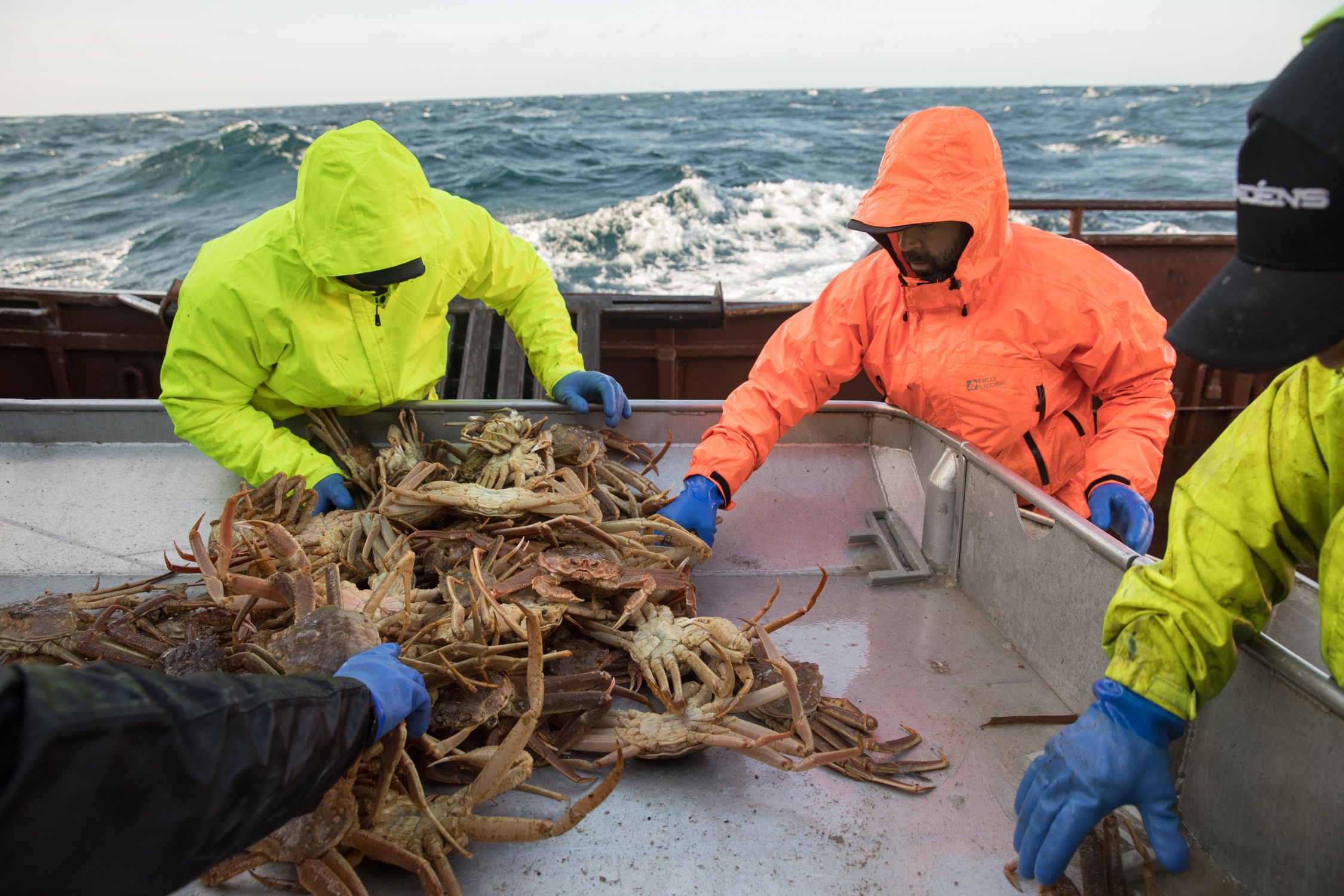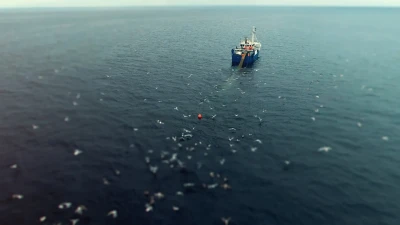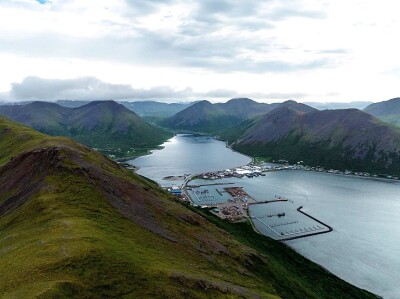The Bering Sea crab collapse has thrown fishermen and their trade association into survival mode. A new online appeal is raising money to push for new crab conservation measures and federal fishery disaster aid to fishermen.
The Alaska Bering Sea Crabbers Association started a GoFundMe web page this week, aiming for $50,000 in contributions to support “the small non-profit trade association advocating for crab fishermen who fish for king, snow, and bairdi crab,” the group wrote on the page.
“Since our formation in 2009, we have been funded by our fishermen directly. Now that our fisheries are closed, our fishermen do not have an income to support their own fishing businesses, let alone the trade association that represents them. This is why we are asking for your help.”
The emergency appeal is aimed at three priorities: maintaining the association’s advocacy role on science and conservation measures, working to secure federal fishery disaster assistance, and helping crab captains and crews idled by the shutdown.
“We’re working on a program on the back end for education and retraining for other maritime jobs” if crew members wish to pursue new career paths, said Jamie Goen, executive director of the Alaska Bering Sea Crabbers. The GoFundMe is dedicating 25 percent of donations toward that part of the mission, she said.
On disaster aid, “we’re hoping to hear from congressmen and senators in the next couple of days” following the mid-term elections, said Goen. Working with other Alaska communities and stakeholders there is hope some commitments can be obtained through the Department of Commerce and possibly Congress in the next few weeks, she said.

On science and conservation issues, the association will continue working through the North Pacific Fishery Management Council, National Marine Fisheries Service and Alaska state officials for ways to stabilize and restore the crab resources, said Goen.
That task has much bigger implications for how all U.S. fisheries management must come to face with climate change impacts, said Goen. Biologists believe climactic shifts in the North Pacific and Bering Sea have driven the sharp declines measured in recent surveys, which led to announcement of broad closures Oct. 10.
“We’ve been saying we’re the test case,” said Goen. How the Bering Sea crab collapse is addressed could show “what it will take to build a more sustainable model,” she said.
The group’s fundraising appeal is stark.
“No one ever wants to face the day you’re on the verge of losing the job you love that shapes your identity, supports your family, and gives you purpose. Unfortunately, Bering Sea crab fishermen are facing that day. Alaska’s Bering Sea snow crab fishery is closed for the first time in U.S. history and Bristol Bay red king crab is closed for the second year in a row. These closures are killing hard-working family fishing businesses.”
Warning signs of poor survey results in the months leading up to the shutdown had crabbers demanding more precautions to reduce crab bycatch in other fisheries and protect habitat. The association’s appeal echoes that drive.
“With some extra conservation measures, Bering Sea crab fisheries are expected to recover to levels that can again support viable fisheries in the years to come. In the meantime, please consider supporting our organization so we can continue to advocate for crab fishermen and the resource. Without immediate financial help, Alaska Bering Sea Crabbers, the main organization advocating for crab fishermen, will go out of business.”







